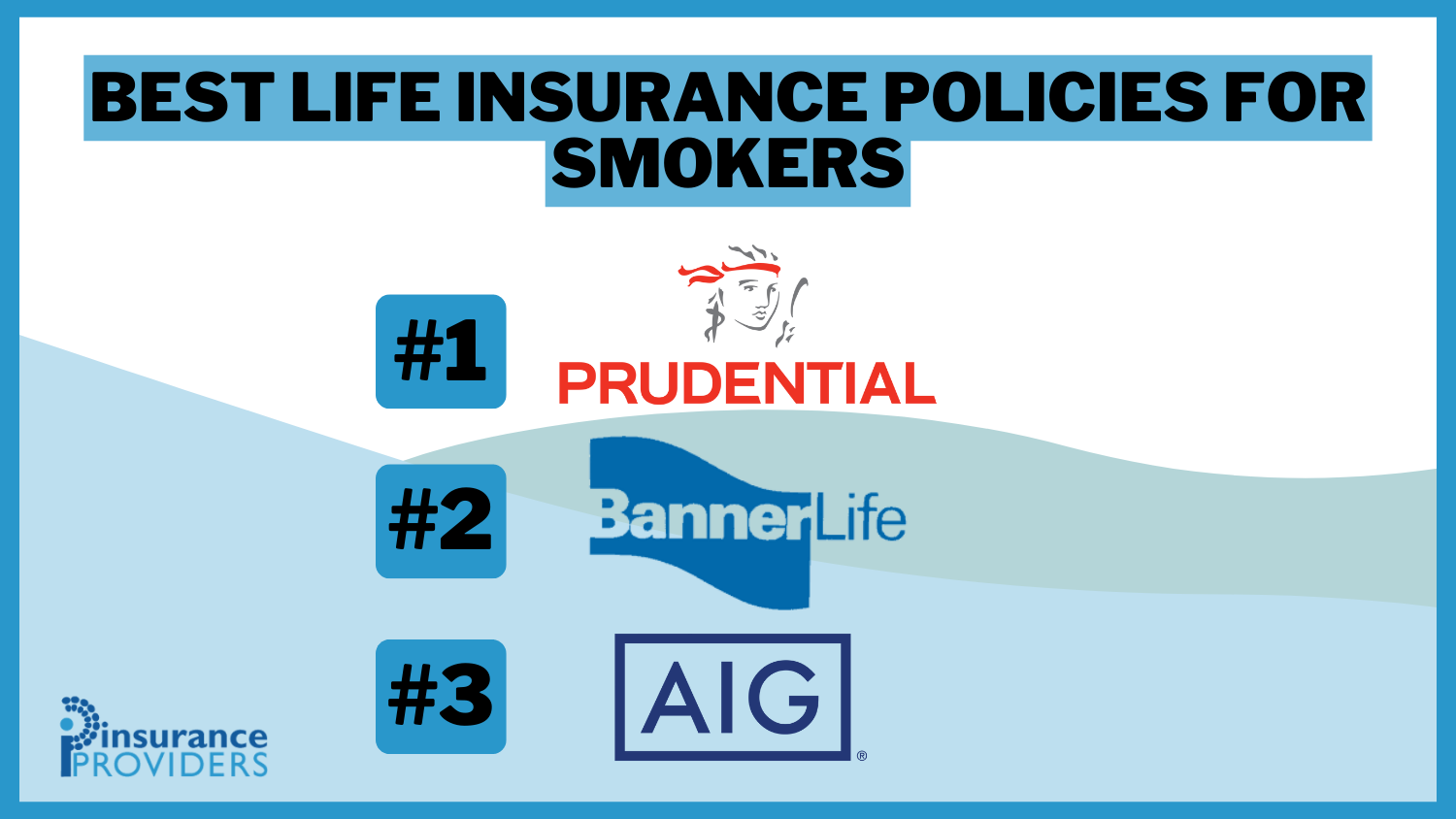Can you get life insurance with a digestive disorder?
Are you wondering if it's possible to secure life insurance coverage with a digestive disorder? This article explores the options available for individuals with such conditions, providing valuable insights and guidance. Discover how you can protect your loved ones' financial future despite your health challenges.
Read more Secured with SHA-256 Encryption





Table of Contents
Table of Contents


Insurance and Finance Writer
Dorothea Hudson has been professionally writing in many spheres since 2013. She has written on entertainment, insurance, finance, travel, technology, AI, renewable energy, crypto, fundraising, and real estate for many websites. Her work has been published for British retailer Marks and Spencer, Kroger Magazine, the Vision Group, and more. Her passions include writing, music, running, travel, te...
Dorothea Hudson


Insurance & Finance Analyst
Laura Adams is one of the nation’s leading finance, insurance, and small business authorities. As an award-winning author, spokesperson, and host of the top-rated Money Girl podcast since 2008, millions of readers and listeners benefit from her practical advice. Her mission is to empower consumers to live healthy and rich lives by planning for the future and making smart money decisions. She rec...
Laura D. Adams
Updated September 2023
Living with a digestive disorder can present many challenges in day-to-day life. From managing symptoms to making necessary lifestyle adjustments, those who suffer from these conditions often find themselves facing unique obstacles. One area where these challenges commonly arise is in the realm of life insurance. This article seeks to provide a comprehensive understanding of the impact digestive disorders can have on life insurance coverage and offers helpful tips for individuals looking to secure a policy.
Understanding Digestive Disorders
Digestive disorders encompass a wide range of conditions that affect the digestive system, which plays a vital role in the body’s overall function. These disorders can result from various factors, including genetics, lifestyle choices, and environmental influences. From chronic conditions like Crohn’s disease and ulcerative colitis to common ailments such as irritable bowel syndrome (IBS), digestive disorders can cause significant discomfort and disruption in a person’s life.
The digestive system is a complex network of organs and tissues that work together to break down food, absorb nutrients, and eliminate waste. When this system is disrupted, it can lead to a variety of digestive disorders that can affect a person’s overall health and well-being.
What are Digestive Disorders?
Digestive disorders refer to an array of conditions that impact the gastrointestinal tract and associated organs. They can affect the absorption, digestion, and elimination process. Some common digestive disorders include gastroesophageal reflux disease (GERD), celiac disease, and diverticulitis. These conditions often lead to symptoms such as abdominal pain, bloating, diarrhea, constipation, and indigestion.
Gastroesophageal reflux disease, commonly known as GERD, is a chronic condition where stomach acid flows back into the esophagus, causing heartburn and other uncomfortable symptoms. Celiac disease is an autoimmune disorder in which the body cannot tolerate gluten, a protein found in wheat, barley, and rye. This intolerance can lead to damage in the small intestine and result in nutrient deficiencies. Diverticulitis is a condition where small pouches, called diverticula, form in the lining of the colon and become inflamed or infected, causing abdominal pain and changes in bowel habits.
Common Types of Digestive Disorders
There are several types of digestive disorders that individuals may encounter. Some of the most prevalent include:
- IBS (Irritable Bowel Syndrome)
- Crohn’s Disease
- Ulcerative Colitis
- GERD (Gastroesophageal Reflux Disease)
- Celiac Disease
- Diverticulitis
Irritable Bowel Syndrome (IBS) is a common disorder that affects the large intestine. It is characterized by abdominal pain, bloating, and changes in bowel habits, such as diarrhea or constipation. Crohn’s disease is a chronic inflammatory bowel disease that can affect any part of the digestive tract, causing symptoms such as abdominal pain, diarrhea, and weight loss. Ulcerative colitis is another form of inflammatory bowel disease that primarily affects the colon and rectum, leading to symptoms like bloody diarrhea, abdominal pain, and fatigue.
These conditions can vary in severity and may require ongoing medical management and treatment. It is crucial for individuals with digestive disorders to understand how these conditions may impact their eligibility for life insurance coverage.
Living with a digestive disorder can be challenging, both physically and emotionally. It is important for individuals to work closely with their healthcare providers to manage symptoms, make necessary lifestyle changes, and seek appropriate treatment options. With proper care and support, individuals with digestive disorders can lead fulfilling lives and minimize the impact of these conditions on their overall well-being.
Free Life Insurance Comparison
Compare Quotes From Top Companies and Save
Secured with SHA-256 Encryption
The Impact of Digestive Disorders on Daily Life
Digestive disorders can have various implications on an individual’s daily life. From physical challenges to emotional and psychological effects, these conditions often extend beyond the physical symptoms.
Living with a digestive disorder can result in a range of physical challenges. Individuals may experience flare-ups of symptoms, leading to debilitating pain, discomfort, and limitations in daily activities. The unpredictability of symptoms can make it difficult to maintain a consistent routine and engage in social or professional obligations.
For example, imagine waking up one morning with a severe stomachache that prevents you from getting out of bed. You had plans to go to work or meet up with friends, but now you have to cancel everything. The pain is so intense that you can’t even concentrate on simple tasks like reading or watching TV. This disruption to your daily life can be frustrating and demoralizing.
Patients with digestive disorders may also face dietary restrictions or food intolerances, which can further impact their quality of life. They may need to adhere to specific diets, avoid trigger foods, and take medications to manage symptoms effectively.
Picture yourself sitting at a restaurant with friends, trying to find something on the menu that won’t trigger your digestive symptoms. You have to carefully analyze every ingredient and ask the waiter multiple questions about how the food is prepared. Your friends may not understand why you’re being so picky, which can lead to feelings of isolation and frustration.
The emotional and psychological impact of living with a digestive disorder should not be underestimated. Constant pain, fatigue, and discomfort can lead to increased stress, anxiety, and depression. Individuals may face challenges in maintaining personal relationships, pursuing career goals, and participating in social activities.
Think about the toll that chronic pain and discomfort can take on your mental well-being. It’s hard to stay positive and motivated when you’re constantly battling with your own body. The fear of experiencing flare-ups or embarrassing symptoms in public can also lead to social anxiety and withdrawal from social activities.
It is crucial to address the emotional well-being in addition to the physical symptoms when managing digestive disorders. Seeking support from healthcare professionals, support groups, and loved ones can be instrumental in coping with the emotional toll these conditions can bring.
Imagine having a support group of people who understand exactly what you’re going through. You can share your experiences, frustrations, and triumphs with others who can relate. This sense of community can provide a much-needed source of comfort and encouragement.
In conclusion, digestive disorders have a significant impact on daily life, affecting not only physical health but also emotional and psychological well-being. It is important to recognize and address these challenges, seeking appropriate support and resources to manage the various implications of these conditions.
Life Insurance Basics
Before delving into the specifics of securing life insurance with a digestive disorder, it is essential to understand the basics of life insurance itself.
Life insurance is a contract between an individual and an insurance company. In exchange for regular premium payments, the insurance company agrees to provide a death benefit to the policyholder’s beneficiaries upon their passing. This lump sum payment can help provide financial security to loved ones left behind and can be used to cover various expenses, including funeral costs, outstanding debts, and ongoing living expenses.
However, life insurance is not just a financial product; it is a means of ensuring peace of mind and protecting the future of your loved ones. By having life insurance, you can have the comfort of knowing that even in your absence, your family will be taken care of.
What is Life Insurance?
Life insurance is a fundamental part of financial planning for individuals and families. It is a way to protect your loved ones from the financial burden that may arise in the event of your death. By having life insurance, you can leave behind a legacy of financial stability and security.
Life insurance policies come in various forms, such as term life insurance, whole life insurance, and universal life insurance. Each type has its own unique features and benefits, allowing individuals to choose the coverage that best suits their needs and goals.
Why is Life Insurance Important?
Life insurance is an essential financial tool that can provide peace of mind and financial protection for individuals and their families. It ensures that loved ones are taken care of financially in the event of a policyholder’s death and can help provide stability during a challenging time.
One of the primary reasons life insurance is important is because it can help cover the immediate and long-term financial needs of your family. The death benefit received from a life insurance policy can be used to pay for funeral expenses, outstanding debts, and ongoing living expenses. This financial support can alleviate the financial burden on your loved ones and provide them with the means to continue their lives without financial hardship.
Life insurance is particularly crucial for individuals with dependents, such as spouses, children, or aging parents, as it offers financial support to cover living expenses and maintain their quality of life. It can help replace the income that would be lost in the event of your death, ensuring that your family can continue to meet their financial obligations and achieve their goals.
Furthermore, life insurance can also be used as a tool for wealth transfer and estate planning. It can provide liquidity to pay estate taxes and ensure that your assets are passed on to your beneficiaries as intended.
Overall, life insurance plays a vital role in protecting your loved ones and providing financial security. It is a proactive step towards securing a stable future for your family, even when you are no longer there to provide for them.
How Digestive Disorders Affect Life Insurance
Digestive disorders can impact life insurance coverage in several ways. Understanding how these conditions may influence the insurance underwriting process and influence insurance rates can help individuals navigate the application process more effectively.
The Insurance Underwriting Process
The insurance underwriting process involves assessing an individual’s risk profile to determine the appropriate coverage and premiums. To evaluate the risk, insurance companies consider several factors, including age, overall health, lifestyle choices, and medical history.
When it comes to digestive disorders, insurance companies may take a closer look at the specific condition and how it may affect an individual’s health and longevity. They may request more detailed information regarding the type of digestive disorder, its severity, and any medications or treatments involved. This thorough evaluation aims to assess the potential risk associated with providing coverage.
For example, if an individual has a mild case of acid reflux that is well-managed with over-the-counter medication, it may have minimal impact on their life insurance rates. However, if someone has a more severe condition like Crohn’s disease or ulcerative colitis, which require ongoing medical treatment and can lead to complications, insurance companies may view them as higher risk and adjust their rates accordingly.
How Digestive Disorders Influence Insurance Rates
Depending on the severity and management of the digestive disorder, insurance rates can vary. Individuals with well-controlled conditions or limited symptoms may have access to more affordable insurance rates. On the other hand, those with more severe or unmanaged disorders may face higher premiums or even potential declination.
Insurance companies consider the potential impact of the digestive disorder on an individual’s overall health and life expectancy. If the disorder is well-managed, with regular check-ups, medication adherence, and a healthy lifestyle, it may not significantly affect insurance rates. However, if the disorder is poorly managed, leading to frequent hospitalizations, surgeries, or complications, insurance companies may view it as a higher risk and adjust the rates accordingly.
It is essential to disclose all relevant information accurately during the underwriting process to ensure transparency and avoid potential issues with claims in the future. Failure to disclose a pre-existing digestive disorder could result in the denial of a claim if it is discovered later on.
Additionally, individuals with digestive disorders should consider working with an independent insurance agent who specializes in high-risk cases. These agents have experience navigating the underwriting process for individuals with pre-existing conditions and can help find the best coverage options at the most competitive rates.
In conclusion, digestive disorders can have an impact on life insurance coverage and rates. It is crucial for individuals with these conditions to understand the underwriting process and accurately disclose all relevant information. Working with an experienced agent can help navigate the application process and find the best coverage options available.
Free Life Insurance Comparison
Compare Quotes From Top Companies and Save
Secured with SHA-256 Encryption
Tips for Getting Life Insurance with a Digestive Disorder
While securing life insurance with a digestive disorder may present challenges, it is not an impossible task. Consider the following tips to enhance your chances of obtaining coverage:
Choosing the Right Insurance Company
Research and select insurance companies that specialize in or have experience providing coverage for individuals with pre-existing conditions. These companies are more likely to understand the unique needs and challenges associated with digestive disorders and may offer more favorable rates and coverage options.
Preparing for the Medical Examination
Be prepared to provide detailed information about your digestive disorder during the medical examination. Inform the examiner about your specific condition, any medications or treatments you are undergoing, and how you manage your symptoms. Collaboration with your healthcare provider can help ensure accurate information is conveyed during this process.
Disclosing Your Medical History
Full disclosure is crucial when it comes to providing information about your medical history, including any digestive disorders. Failure to disclose accurate information can lead to complications, potential claim denials, or policy cancellations in the future.
In summary, individuals with digestive disorders can obtain life insurance coverage with proper understanding and planning. By assessing their specific condition, managing symptoms effectively, and working with suitable insurance providers, individuals can secure financial protection for their loved ones while living with a digestive disorder.
Frequently Asked Questions
Can you get life insurance if you have a digestive disorder?
Yes, it is possible to get life insurance even if you have a digestive disorder. However, the availability and terms of coverage may vary depending on the specific disorder and its severity.
What types of digestive disorders may affect life insurance eligibility?
Various digestive disorders can potentially impact life insurance eligibility, such as Crohn’s disease, ulcerative colitis, irritable bowel syndrome (IBS), celiac disease, and chronic liver diseases.
Will having a digestive disorder affect the cost of life insurance?
Yes, the cost of life insurance may be affected if you have a digestive disorder. Insurance companies typically consider the severity of the disorder, treatment history, and overall health when determining premiums.
Do I need to disclose my digestive disorder when applying for life insurance?
Yes, it is crucial to disclose any pre-existing digestive disorders when applying for life insurance. Failing to disclose accurate information could result in the denial of a claim in the future.
Can I get life insurance if I have a history of digestive disorder surgeries?
Yes, it is possible to obtain life insurance even if you have undergone surgeries related to digestive disorders. However, the insurance company may review the details of the surgeries and their outcomes to assess your eligibility and premium rates.
What documents or medical records may be required when applying for life insurance with a digestive disorder?
When applying for life insurance with a digestive disorder, you may be required to provide medical records, including diagnoses, treatment history, medications, surgical details (if applicable), and any relevant test results such as endoscopy or colonoscopy reports.
Get a FREE Quote in Minutes
Insurance rates change constantly — we help you stay ahead by making it easy to compare top options and save.






